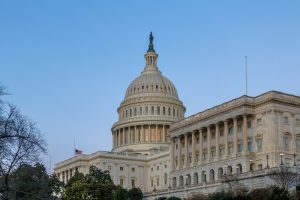The Wireless Infrastructure Association (WIA) has called for the FCC to implement a national framework for broadband permitting in its policy playbook, “A Roadmap to Unlocking Connectivity Everywhere in the Next Administration.”
As part of its policy playbook, WIA said the most important step that Congress and the Administration can take to expand connectivity is to enact the American Broadband Deployment Act (ABDA), which would codify several major permitting reforms enacted by the FCC and adjust federal rules for broadband permitting on federal lands.
“ABDA enshrines several existing FCC orders into law that provide predictable timelines for application processes, including ‘shot clocks’ on permit applications for wireless facilities,” WIA said. This provides timelines for deciding upon an application and ‘deemed granted’ relief where an authority fails to act on the application in the given time.”
ABDA seeks to preempt certain local regulations that may hinder the deployment of broadband infrastructure. WIA asserted, however, that the rules implemented through ABDA would protect municipalities’ role in permitting but give the wireless industry more certainty.
“To be clear, WIA values and respects the need for local permitting processes,” the association said. “A consistent permitting framework set at a national level, but flexible enough to accommodate local needs and interests, is the key to sustained success for wireless infrastructure deployment.” WIA stated that it is campaigning against permit review that is “unpredictable…or unworkably opaque.”
Lawyers at Akin Gump have predicted that “a renewed focus on streamlining the rules” will be engaged for fiber infrastructure deployment under the Trump Administration. This includes limits on the fees for the review of wireline applications by local and state governments and time restrictions on their permitting process.
The FCC under the Trump administration is expected to be much more amenable to deregulation than in the past. In testimony before Congress in 2023, incoming FCC Chairman Brendan Carr applauded previous legislative attempts to streamline and accelerate broadband infrastructure builds.
“Permitting reform is vital to the nation’s efforts to promote broadband builds and close the digital divide,” Carr said. “To end the digital divide, we need to make even more progress on permitting reform, including for builds that cross federal lands.” Carr has also voiced a desire to streamline pole attachment regulations.
Jonathan Kramer of Telecom Law Firm, who represents numerous municipalities, told AGL Info Tech he believes the FCC’s desire to deregulate the permitting process is a misnomer.
“To achieve the deregulation that [incoming FCC Chair] Carr has discussed, he would need to actually add more regulations, but not on those who are supervised by the FCC,” he said. “The incoming FCC administration will likely create scenarios where telecom companies, by right, may construct facilities regardless of local government regulations.” Additionally, Kramer believes the telecom industry will have an outsized role in creating the regulations that impact municipalities.
The development of the regulatory environment is in something of a state of flux thanks to a Supreme Court ruling in June of last year when it struck down the so-called Chevron Doctrine. That ruling limited the FCC’s ability to interpret laws passed by Congress. Some believe the Chevron ruling opened the door to additional court challenges to a number of rules currently on the FCC books. Along that line, at the beginning of this year, the FCC’s authority to regulate the internet, known as net neutrality, was struck down by the U.S. Court of Appeals for the Sixth Circuit.
On the other hand, Kramer believes that the demise of the Chevron Doctrine could empower the courts to rule against future FCC regulations. “We may see the courts push back against the regulatory agencies, including the FCC, as those agencies attempt to reshape the regulatory framework,” Kramer said.
Interestingly enough, the Chevron Doctrine was put into place by a conservative court in a 1984 case to aid in deregulation during the Reagan Administration, according to Thomas W. Merrill, Columbia Law School.



